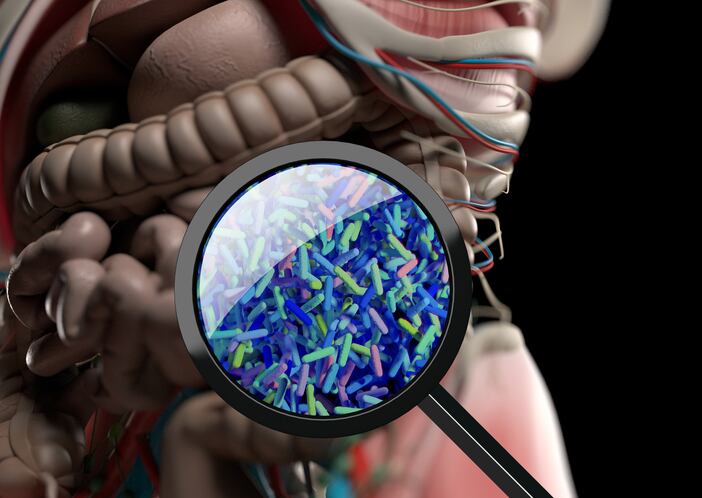PAH is a chronic and progressive disease in which the arteries that supply blood to the lungs are constricted, resulting in symptoms such as shortness of breath, heart palpitations, fatigue and others. In PAH, persistently high blood pressure in lung arteries makes the right side of the heart work too hard to pump blood, resulting in right-sided heart failure. It is much less common than systemic blood pressure, which represents the force of blood moving through blood vessels throughout the entire body.
Researchers from the University of Florida College of Medicine found that having a specific microbiota profile in the gut could predict the presence of PAH with 83% accuracy.
Mohan Raizada, Ph.D., lead study author and distinguished professor in the department of physiology and functional genomics at the University of Florida College of Medicine, said: "We showed for the first time that specific bacteria in the gut are present in people with PAH. While current PAH treatments focus on the lungs, looking at the lung/gut axis could open the door to new therapies centered in the digestive system."
For the study, published in the American Heart Association's journal Hypertension, stool samples were collected from 18 PAH patients and 12 people without a history of cardiopulmonary disease (reference cohort). The microbiota DNA from the stool samples were isolated and sequenced and testing revealed a group of bacteria unique in the PAH patients that were associated with PAH.
Results
Significant taxonomic and functional changes in microbial communities in the PAH cohort were observed. Pathways for the synthesis of arginine, proline, and ornithine were increased in PAH cohort compared with reference cohort.
Additionally, groups of bacterial communities associated with trimethylamine/ trimethylamine N-oxide and purine metabolism were increased in PAH cohort.
In contrast, butyrate-and propionate-producing bacteria such as Coprococcus, Butyrivibrio, Lachnospiraceae, Eubacterium, Akkermansia, and Bacteroides were increased in the reference cohort.
A random forest model predicted PAH from the composition of the gut microbiome with 83% accuracy. Analysis of samples from the PAH cohort also showed enrichment of Enterococcal and relative depletion of Lactococcal phages.
This is the first link between a specific collection of bacteria and PAH. However, it is not the first time that gut bacteria have been connected to medical conditions. A variety of different gut microbiota profiles have been linked to a variety of cardiovascular diseases including high blood pressure.
Raizada adds: "We were very surprised to see such an association within a small group of study subjects...It usually requires hundreds of patients to achieve such significance."
Gut microbiota are constantly changing, depending on what we eat, our environment and especially our genetic makeup. However, Raizada said the bacteria associated with PAH are unique and do not seem to change.
Larger study required
The authors state that if the results are validated in a larger study, the researchers said that the unique bacterial profile could help to diagnose PAH early, possibly replacing the invasive heart catheter that is used today to diagnose the disease.
Also, they say new types of treatment focused on altering the gut microbiome of PAH patients could be developed, providing new hope for halting the progression of the disease.
But Raizada adds that another important question to be researched is how the gut bacteria impacts the lungs of PAH patients.
"We do not know if and how gut bacteria and viruses make their way to the lungs.
"Some studies have pointed to an increased incidence in intestinal leakage among people with pulmonary hypertension, which may allow some intestinal bacteria to get into the bloodstream and circulate to the lungs where they can cause inflammation and lead to vascular changes.
"There is still the question of whether the specific microbiota associated with PAH is the cause or the result of the disease, therefore, more research is needed,"
Source: Hypertension
Seungbum. K., et al
"Altered Gut Microbiome Profile in Patients With Pulmonary Arterial Hypertension"


